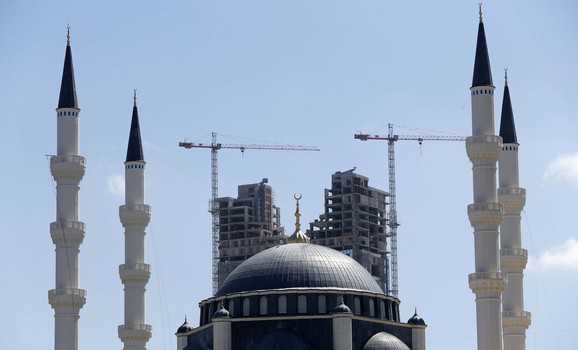/PanARMENIAN.Net/ Senator Barack Obama has received written responses to the four written questions he submitted to U.S. Ambassador Designate Marie Yovanovitch as part of the Senate Foreign Relations Committee’s ongoing review of her nomination to serve as the next U.S. Ambassador to Armenia, the Armenian National Committee of America (ANCA) told PanARMENIAN.Net
“We remain troubled by Ambassador Yovanovitch’s evasive answers, her outright non-responses, and her refusal, in her replies to Senator Obama and other Senators, to offer anything approaching a reasonable or factually supportable explanation of the reasons behind Administration’s misguided policy on the Armenian Genocide,” said Aram Hamparian, Executive Director of the ANCA.
“This being said, it appears as though Ambassador Yovanovitch and her colleagues have learned from the disastrous Hoagland experience and are coming to understand that the U.S. Senate will not accept – and the Armenian American community will never allow – an Ambassador to
Armenia who denies the Armenian Genocide.”
Ambassador Yovanovitch appeared as a witness before the Committee on June 19th. During this appearance, she faced a series of pointed questions from Senator Bob Menendez (D-NJ) regarding the Bush Administration’s policy to mischaracterize the Armenian Genocide. Afterwards, as many as eight Senators, including Senator Menendez, submitted a series of written inquiries to the nominee.
“We compromise our standing as a nation when we require that our Foreign Service officers either lie or conceal the truth in the conduct of our foreign affairs. This exercise of euphemisms and evasion in relation to the Armenian Genocide, which everyone knows is the result of Turkish government pressure, undermines our credibility,” added Hamparian. “Our diplomats should be sent abroad with a clear message: speak the truth and America will stand with you.”
President Bush nominated Amb. Marie L. Yovanovitch in March of this year to serve as America’s next Ambassador to Armenia. The ANCA has spoken to Committee members about the value of carefully questioning Amb. Yovanovitch on the many issues she will face as the U.S. envoy in Yerevan, among them the recognition of the Armenian Genocide, Turkey and Azerbaijan’s ongoing blockades of Armenia, and the need for a balanced U.S. role in helping forge a democratic and peaceful resolution to the Nagorno Karabakh conflict.
“The U.S. government – and certainly I – acknowledges and mourns the mass killings, ethnic cleansing, and forced deportations that devastated over one and a half million Armenians at the end of the Ottoman Empire. The United States recognizes these events as one of the greatest tragedies of the 20th century, the “Medz Yeghern” or Great Calamity, as many Armenians refer to it. That is why every April the President honors the victims and expresses American solidarity with the Armenian people on Remembrance Day.
The Administration understands that many Americans and many Armenians believe that the events of the past that I have referred to should be called “genocide.” It has been President Bush’s policy, as well as that of previous presidents of both parties, not to use that term. The President’s focus is on encouraging Turkish citizens to reconcile with their past and with the Armenians. He seeks to support the painstaking progress achieved to date. President Bush believes that the best way to honor the victims is to remember the past, so it is never repeated, and to look to the future to promote understanding and reconciliation between the peoples and governments of Armenia and Turkey. A key part of that effort is to end Armenia’s isolation in the region by encouraging normalization of relations between Armenia and Turkey and the opening of their land border. The Armenian government has requested that we facilitate this process. It will not be easy nor will it likely be quick, but there are some hopeful signs,” Ambassador-Designate Yovanovitch said in her testimony before the Senate Foreign Relations Committee on June 19.
President Bush’s previous nominee as U.S. Ambassador to Armenia, Richard Hoagland, was subject to two legislative holds by Sen. Menendez and was ultimately withdrawn by the Administration, following the nominee’s statements denying the Armenian Genocide.
The ANCA led the Armenian American community campaign opposing Hoagland’s nomination, stating that a genocide denier could not serve as a credible and effective U.S. spokesperson in Armenia.






